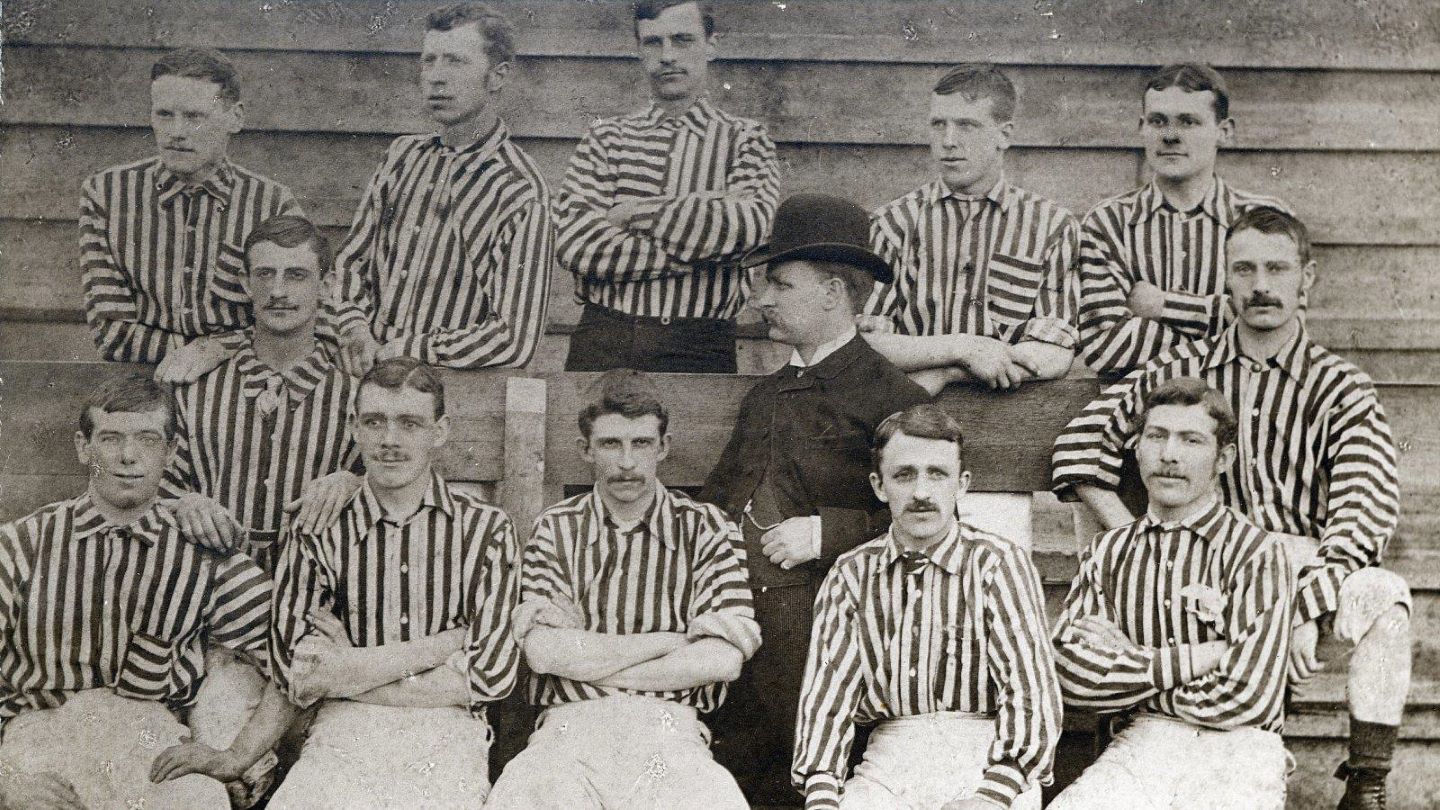Looking back at the first time we reached the last 16 of The FA Cup...
After receiving a bye in the First Round the campaign started with a trip to Middlesbrough in the Second Round. An exciting match saw the hosts take the lead shortly after half-time but then lose a player through a broken collar bone after an accidental collision before City equalised through James Slater. No further scoring took place so an extra half hour was played again without further score so for the first time in the competition City had to face a replay.A week later (November 27th) around 200 people took advantage of a special train from the north east to accompany the Middlesbrough team who were met at the station by City officials and taken for some pre-match refreshments prior to the two o’clock kick off. Again the game was considered exciting and exceedingly fast although at times rough play was to the fore with City, to the delight of most of the 4,000 crowd, running out 2-0 victors although as often happened in mach reports of the era there are conflicting views on who were the scorers. The Lincolnshire Chronicle credits the first goal, three minutes before half-time, to a scrimmage whilst the second goal 10 minutes from the end to Billy Gregson whilst the Northern Echo says Joe Duckworth scored the first goal with George Hallam adding the second.
A visit to Gainsborough Trinity was the reward and the team were accompanied by some 1,200 fans to the Northolme helping boost the crowd to around 4,000. A goal down at half-time Gregson equalised shortly after the interval and extra-time was necessary. With just four minutes of the extra period remaining and in near darkness Trinity retook the lead but almost immediately City equalised through a scrimmage and the match finished two apiece.
Before the replay could take place though Trinity lodged a series of protests with the Football Association regarding the match namely that:
1: Lincoln arrived 20 minutes after the advertised kick-off time
2: The Trinity goalkeeper was illegally impeded for the last goal (Howlett the goalkeeper received severe internal injuries in the scrimmage leading up to the goal and for a while after the match his condition was considered life threatening but he did recover and kept goal in the replay)
3: It was too dark to see during extra-time
4: Last goal was kicked after time
5: Lincoln played ineligible men
All five protests were dismissed but a later sixth protest regarding the venue of the January replay was upheld. Trinity wanted to play on a neutral ground rather than John O’Gaunts as they had been subjected to some abuse there when they had played Lincoln Ramblers (who had no available ground) in a Lincolnshire Cup tie on December 28th.
As a result the venue was set for Bramall Lane, Sheffield and on January 24th, a week later than planned, with neutral umpires as well rather than ones provided by the two clubs.
Both sides were well supported and despite fears of trouble the crowd was well behaved as City won 1-0 thanks to a second half goal by Hallam. In the evening both teams were guests of Messrs Daw and Savile, lessee and manager of Sheffield‘s Theatre Royal and went to see the pantomime Robinson Crusoe.
Due to the uneven number of teams (19) left in the competition 13 received byes into round four, the last 16, with City one of those and when the draw was made the club were handed the unenviable trip to Glasgow to face Rangers at Kinning Park. This was the final season where Scottish clubs were allowed to enter the competition.
The team, with the exception of goalkeeper Ken Bayne who travelled over night arriving at 7am, made the long trip on the Friday reaching Glasgow just before 9pm allowing them to get a good night’s rest.
A crowd of around 4,000 witnessed the game played on a heavy pitch and with a strong breeze blowing which aided City in the first half but Rangers with several Scottish internationals in their side took the lead after seven minutes. Whilst the City players impressed the crowd with their excellent passing and were considered an equal match with the hosts they failed to test the goalkeeper and a further goal near to half-time saw them fall two behind.
At the interval the referee Mr Evans from Liverpool inspected the home players’ boots presumably to check the length of their spikes didn’t exceed the maximum size but whatever his reasons it caused considerable amusement to the home crowd and was met with derisive laughter.
With the wind in their favour Rangers dominated the second half but were only able to add one further goal midway through the half.
Despite the defeat the City players were praised for their performance with Bayne keeping goal well and the half back line of Joe Duckworth, Alf Mettam (who played on after receiving a badly cut eye) and William Rawlinson was described as the strongest portion of the team. Right back Richard Aspden also played on after suffering an early leg injury which effectively reduced the team to 10 men.
Although the players had undertaken special training prior to the journey it was widely anticipated by supporters that Lincoln were going to lose and it was reported fewer than 150 gathered in Lincoln High Street to await the telegram announcing the result and when it arrived confirming the 3-0 defeat there was no demonstration of any kind and hardly any interest was shown.
